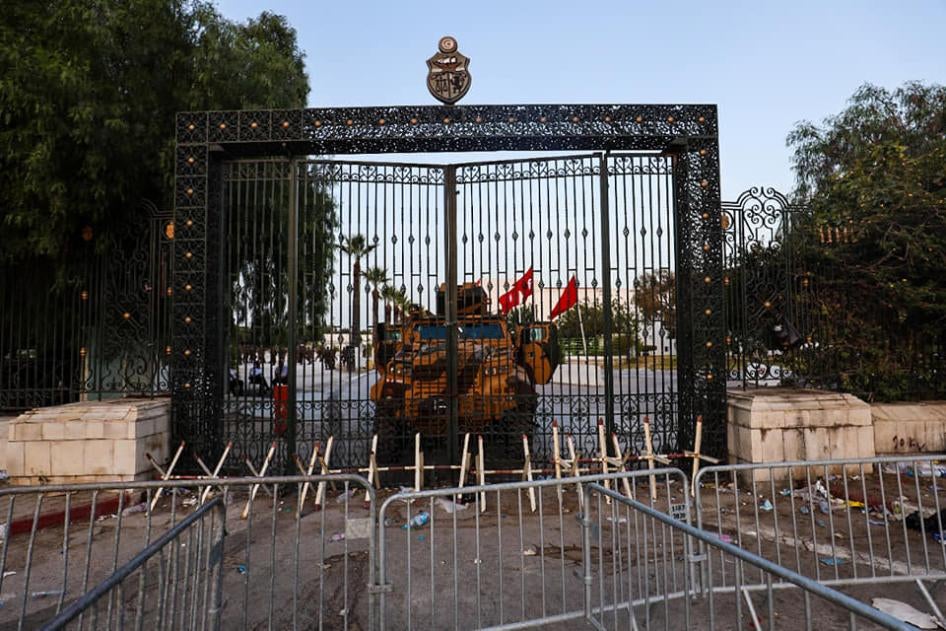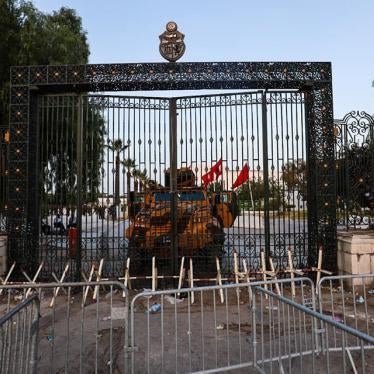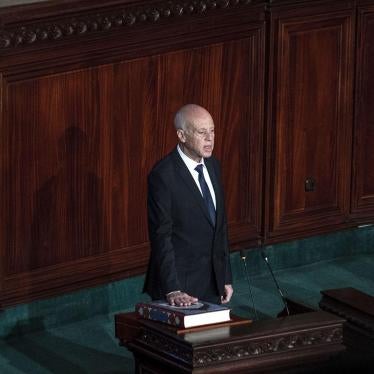(Tunis) – The draft constitution proposed by Tunisian President Kais Saied enumerates many rights but eviscerates the checks and balances needed to protect them, Human Rights Watch said today in a question-and-answer document about the draft. Saied unveiled the text of the draft constitution on June 30, 2022, and urged Tunisians to approve it in a national referendum scheduled for July 25.
The draft gives far more power to the presidency than the current constitution, which provides for a hybrid presidential-parliamentary system, stronger protections for judicial independence, and other provisions that would check executive powers. President Saied suspended much of the current constitution in September 2021, two months after he seized extraordinary powers, suspended parliament, and lifted parliamentary immunity.
“It is not enough for a constitution to list human rights,” said Eric Goldstein, deputy Middle East and North Africa director at Human Rights Watch. “A constitution should create institutions and mechanisms to protect rights from being trampled, and that is what is dangerously missing in Saied’s draft constitution for Tunisia.”









